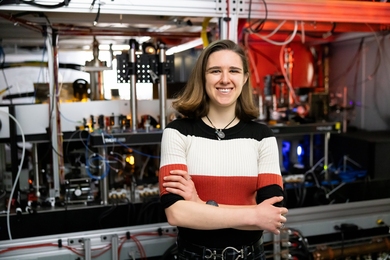The Exxon Corporation has made a $1 million grant to MIT to support a comprehensive study of global climate change and its economic and political ramifications.
The Exxon grant will support the work of the MIT Joint Program on the Science and Policy of Global Change. The joint program was established by MIT Provost Mark S. Wrighton with the goal of providing a more complete and coherent basis for global climate policy development, negotiation and implementation.
"On behalf of MIT, I extend our gratitude to the Exxon Corporation for its very significant contribution to this field of vital importance," Professor Wrighton said. "There is an urgent need in this area of study for more constructive interaction among its components, including climate science, engineering, economic and social science, and policy studies. Promoting such interactions has been a traditional strength of MIT and the Exxon support will enable us to move more effectively in this area."
The joint program is a shared activity of the MIT Center for Global Change Science, headed by Professor Ronald G. Prinn of the Department of Earth, Atmospheric and Planetary Sciences, and the MIT Center for Energy Policy Research, headed by Henry D. Jacoby, the William F. Pounds Professor of Management in the Sloan School of Management.
Professor Wrighton, who chairs MIT's Council on Global Environment, which coordinates the Institute's environmental research agenda, said the two centers "bridge key intellectual areas involved in the needed interdisciplinary work and their contributions will be augmented by other MIT faculty, research staff and students."
Professor Jacoby, program director for the joint activity, said climate research "needs to focus on predictions that relate to economic, social and environmental effects. Assessments of possible societal and ecosystem impacts and mitigation strategies need to be based on realistic representations of the uncertainties of climate science. Greenhouse gas assumptions should be related to the economic, technological and political forces that drive emissions and to the results of international agreements. Current studies have failed to produce the needed level of integration."
The joint program's research will concentrate on four main areas:
- Development of improved frameworks for analysis.
- Background research to support improved frameworks.
- Independent assessment of other science and policy studies.
- Policy analysis of specific mitigation and adaptation proposals.
Other recent developments in environmental studies at MIT include a $5 million grant from Tokyo Electric Power Company (TEPCO) to establish the TEPCO/MIT Joint Global Environmental Research Program and a $3 million gift from The Martin Foundation of Elkhart, Ind., to establish a research fund and a professorship in environmental studies.
A version of this article appeared in the April 28, 1993 issue of MIT Tech Talk (Volume 37, Number 30).





